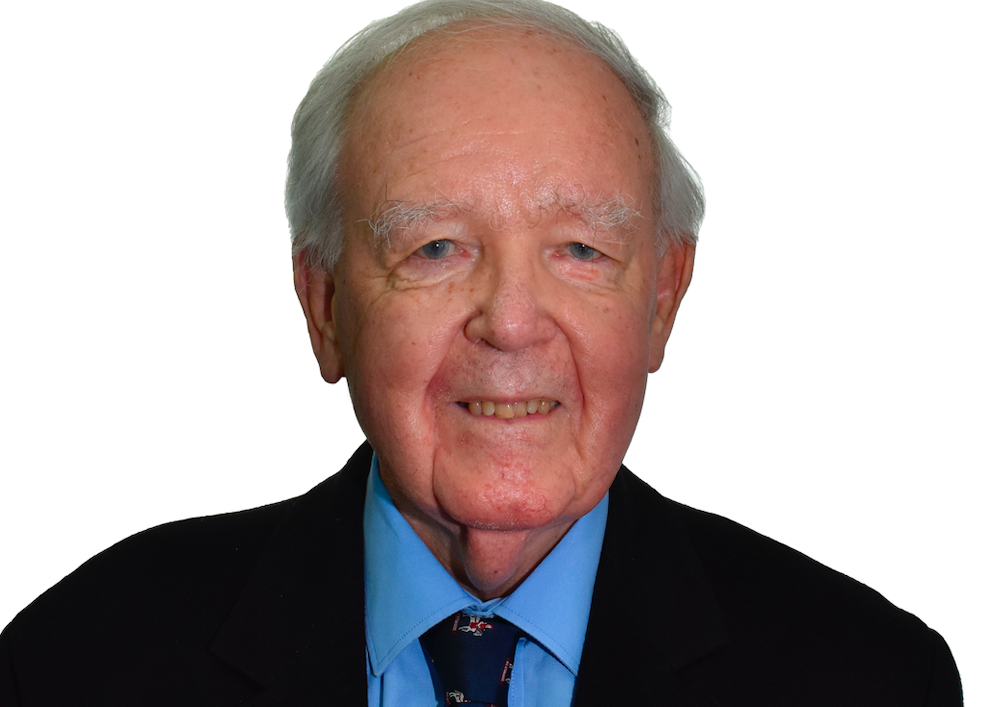One of Britain’s most respected international business leaders, Sir Bob Reid has a history of steering disparate large organisations through challenging times by drawing on universal principles about people, power, and profit that he had absorbed in his youth and expatriate years.
Sir Bob is also the author of “No Condition is Permanent Risk, Adventure and Return: The Business of Life” which chronicles his early years and his career, including the many challenges he faced as a leader in unstable political and economic environments.
He sat down with us recently to give his thoughts on everything from leadership and empowering employees, to steering organisations through a predicted recession.
You’ve had a distinguished career across a wide range of industries including serving as the former Chairman of Shell UK, British Rail and even Deputy Governor of the Bank of Scotland. Given your experience what do you consider makes a business leader great?
Self-belief certainly. Not necessarily over-confidence, but a fervent desire to achieve a long-term goal. This self-belief results in a total commitment.
Followed closely by the ability to identify the people critical to the success of the goal, endeavour if you will. This could be people with particular knowledge… lawyers, financiers etc.
Let me be clear, identifying means firstly really knowing what the business needs. Great business leaders always pick the right people, not necessarily the brightest, often the skill is gauging how a human being will fit into the narrative and work within the team.
Great leaders are always natural communicators. They are ready to engage with people at any time, actively projecting the vision and seeking their input. Leaders are always seeking to learn from the response of others so they can improve the narrative for everyone. This is always an ongoing process, never stops.
Remember a leader is only made great by the situation they find themselves in. Great leaders will seize the opportunity of the situation as it arises.
Leadership and management styles are constantly evolving but are there principles behind them that you feel are timeless?
Firstly, honesty and openness. Successful leaders don’t promise progress hopefully. Their forecasts and predictions of successful leaders are invariably accurate. Transparency focuses people on the problem quicker resulting in better outcomes. When we built the Channel Tunnel, we had a Program Director who always told it as it was and was rarely wrong. This allowed us to react quicker to situations as a team.
The ability to communicate at all levels is timeless, I learnt early on from observing senior Shell executives and their ability to talk and engage with all members of an organisation.
I also think visibility is important; I don’t mean at social events e.g. horse racing, I mean at the place of work. People, employees, want to see their leaders where the work is being done.
Which CEOs today do you feel are doing an exceptional job leading their companies?
Without an intimate association in the work area, it is impossible to comment. But I do have examples from my own experience. When I was MD of Shell UK, my partner from Esso was Archie Forster. When Archie was leading Esso, Shell and Esso made a lot of important progress largely because we didn’t argue. Archie worked hard to maintain a strong relationship with Shell. From Esso’s perspective, they were able to greatly benefit from Shell’s strength in projects. The speed at which we, Shell and Esso, were able to progress together became an advantage because it was effective. For Archie it wasn’t a personal narrative, it was a joint narrative that everyone could benefit from.
How has the power dynamic in the modern boardroom changed? What are your thoughts regarding the “rise of the CFO” for example?
The Boardroom dynamic is the Board’s operation. Members bring their own experience, and that experience is part of the Board’s momentum. The Chairperson then melds their contribution to producing an aggressive achieving company.
I think in the past, because often organisations were owned by a small number of families (Shell was a good example), boards tended to be made up of family members who were there to observe.
This has changed, board members are invited to join a board for their input. Board members are expected to analyse and comment from an unfamiliar perspective. As a result of this increased level of inquisitiveness from the members of the board, the need for an effective commercial CFO has become an imperative. The CFO today must be analytical and commercial as well as tracking the financials.
Do you agree with the aphorism that “people are your greatest asset”?
I think I’d prefer to say, “people are the most important source of the organisation’s strength”. Getting the people in an organisation wrong can result in a complete mess.
So as a leader, it is absolute imperative you understand the core competencies required by the organisation to achieve its goals. Then to put in place a process to not only find and hire people to resource these competencies but also to continue to improve them through practice and ongoing education (learning).
When we setup up the Management Charter Initiative (MCI) in the UK, our purpose was to support the development of competencies within business through continual improvement programs. This was proactively adopted by businesses and has become remarkably successful. Remembering that competency has a theoretical basis, but equally importantly it has a practical philosophy. You have to continually practice it to get better at it.
I have to say… much like golf. But that is another story altogether.
How does a CEO go about empowering employees to achieve business success?
Putting them in a situation, the right situation, and empowering them to act. It is the job of the leader to watch them go through this process and to observe their leadership qualities. Simply ask yourself as a leader: Does this person have the facility to get involved and make things happen? A person with leadership potential will pick up the challenge.
Part of empowering is trust; a leader has to trust a person to go off and act. It is a combination of the supervisor and the person being supervised. As a good leader becomes more confident you got more used to taking risks. Once you have this you have something to build on
Companies are rushing to embrace digitalisation. Do you have any concerns about this, especially in terms of employee relations and job satisfaction?
I think it is pretty well accepted that we are really going through the next phase of industrialisation. You can see the abandoning of certain jobs and the creation of others. We are moving into an era where roles that do not add “cerebral value” will become redundant. However, digitalisation, like all new ideas, will take time to reach its potential. Patience and perseverance are the keys to success in this environment. Encouraging individuals to move forward, to embrace change, and take on new challenges is a critical component of modern leadership skills. Leaders must practice the art of balancing “speed of change” with keeping the organisation on track. We have covered aspects of this leadership requirement above, so this remains firmly in the CEO’s court!
The global economy is in a slump and UK PLC is in tumultuous waters. What advice would you give to a CEO trying to steer their business through all the uncertainty we’re experiencing?
It's a time to revisit and reassess the fundamentals of your business. ‘Slump’ implies that market movements, shifts in industry structure etc could be significant and swift. Business leaders should be driving the thinking of the potential dangers, and the opportunities, of the next 24 months. I’d suggest that strategic development process must first be a basic analysis of what you have and what you can get to add to that, strategy development must always be realistic and near to achievement.
Leaders must continually remind themselves of what is happening around them, to other businesses as well as their own. Business never stays the same, you need to be able to read the environment. Always be asking yourself ’why is it like this?’. Sometimes it can be solely the entry of an individual with a different drive.
Observe, and read the signs. Who is making money, and who is going out of business. This is a crucial background to understanding your own business. For example, in the oil business, someone all of a sudden finds a new source, and this creates a new flow of business you need to understand this.
Shell was renowned for its scenario planning discipline, in essence, this was the art of “staying in the question” long enough to draw out the insights for navigating the business through a period of major uncertainty.











